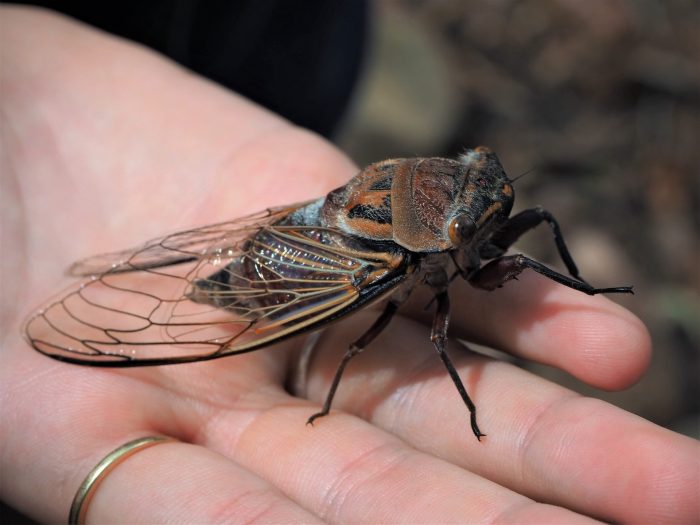It felt as if there was no oxygen left to breathe that day. Australia was burning.
The smell found its way into houses, even with doors shut. Smoke hung through the landscape as if someone shaded in the spaces with a pencil. Haze almost defined a new color, blended with bushfire smoke, car exhaust, and barbecues.
Even if you could escape it, the television news reminded us with footage of roaring flames and blackened communities. In Melbourne, on the Thursday before Christmas 2019, the temperature reached 40 degrees Celsius (104 degrees Fahrenheit).
I’d driven through the outer suburbs two days before. The heat was already building—rising like slow lava. Weather maps predicted the heat to come. A swathe of deep red, promising an approaching heat wave superimposed over Australia’s borders and satellite images.
Escape lay in a few places. Maybe in shifting shade at the beach, under the Banksia trees spindly along foreshores. You could escape to air-conditioning as long as there were no blackouts. Find a hotel where the beer was cold. Scoop up handfuls of ice and glide them melting across the back of your neck. Here and there, storms broke, lightning twitching and starting new fires.
There was a lot of noise before last Christmas. Politicians debating—or name-calling—whether climate change caused the fires and the desperate wailing of sirens through the streets. Radios were broadcasting warnings to leave now, and an emergency warning was in place.
It’s was too late to leave; the only option was to take shelter.
While driving, I passed the expanse of a park with dozens of pole-straight trees, sun glinting through canopies of leaves. Hundreds of cicadas sang from the spaces, their noise behind me for a long time before it was fading as I drove on.
I was familiar with their presence at that time of year: a sound of seasons, the cycles of nature, along with flowers and picking vegetables. A sound whilst loud also calming, assuring us some of the earth’s rhythms remained intact.
Two days later, the forecasted heat wave arrived in Melbourne. It spread everywhere: burning hands on the steering wheel, heating through layers of the skin on your face, seat belt buckles scalding fingers, and smoke everywhere—in your skin, the back of your throat, through curtains, hair, and even the clothes you tossed into the laundry.
The smoke was so thick that it was like inhaling gravity. We shielded eyes, pulled on shorts at the end of our working day, drank endless sugary drinks we knew were bad for us, and wished for winter.
In the early evening, I walked out, the air chunky with still heat. I waited for the cicadas. Normally, hot nights were the time when their chorus began. But the night was silent. Maybe a whimper of breeze and a muted television voice from a neighbor. A car swishing by. But otherwise nothing.
After that evening, it remained silent night after night.
Christmas was almost at hand, and in between writing cards and planning that Christmas lunch, I stepped outside, listening to the treetops. By Christmas, cicada numbers normally begin to fall. Only with a few stragglers left, whose songs usually puncture the night here and there.
In the smoke curdled air, there was nothing but silence. They had died out. That’s the conclusion I came to. Hundreds, possibly thousands, had died in a single day.
By the time I combed my local park, it was too late to see any evidence as birds would’ve most likely eaten their remains. It’ll take 17 years before the exact consequences can be understood. That’s when the offspring of these cicadas would normally emerge. What sort of summer will they face? Most likely, hotter and dryer, although when the rains do come, they’ll probably arrive at once so that there will be flash flooding followed by more dry spells.
By the time any cicadas hatch from 2019’s generation, I will be in my 80s. And I wonder whether there will be that silence again. The silence telling us that something has been lost.
~












Read 2 comments and reply